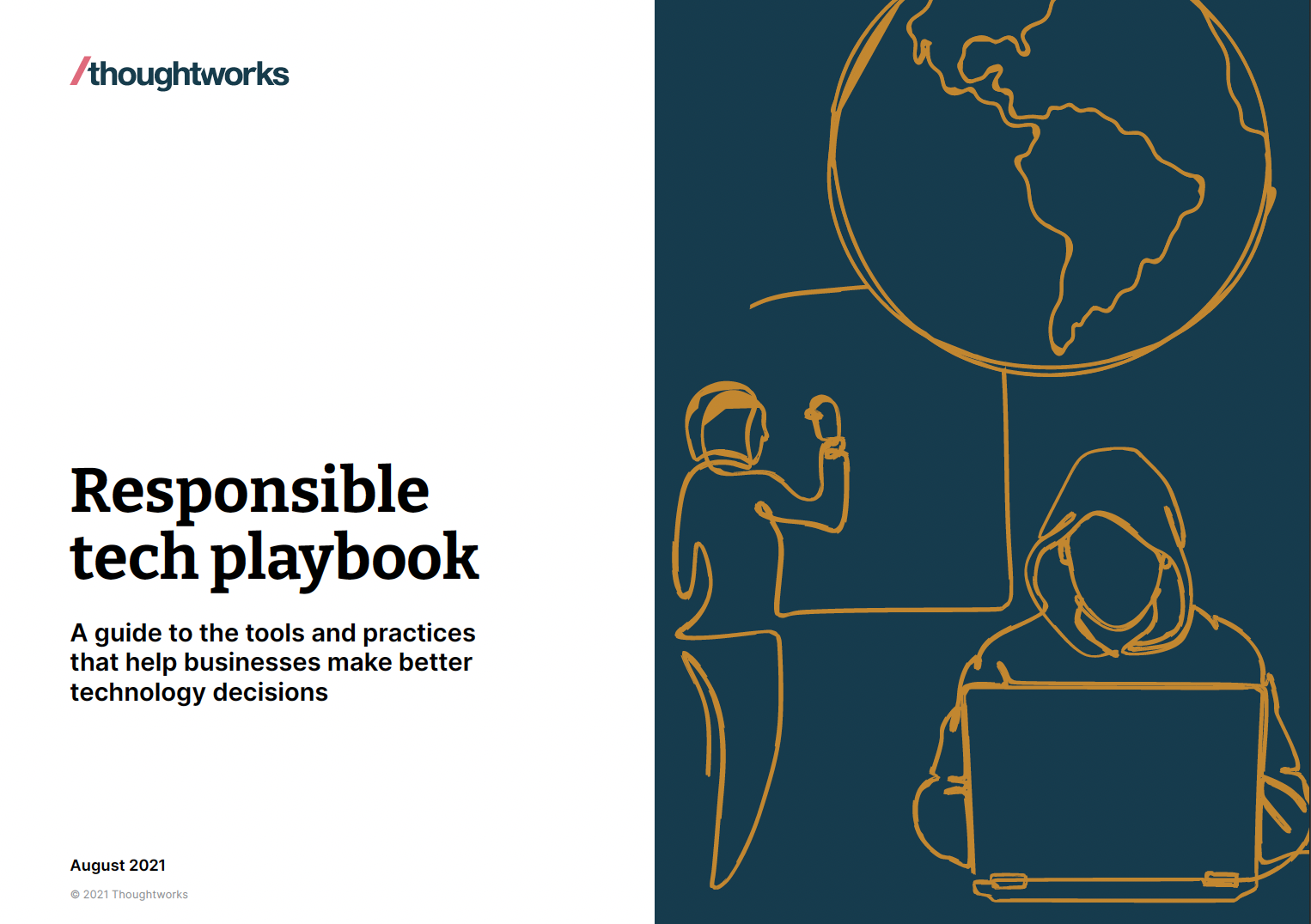Responsible Tech Playbook
Those of us developing software don’t need to be told what a big impact it’s had on humanity this century. I’ve long maintained that this places a serious responsibility on our profession. Whether asked to or not, we have a duty to ensure our systems don’t degrade our society. But in the tumult of so many software projects, it can be difficult to step back and understand the implications of our work. In the last few months my colleagues at Thoughtworks have been putting together a catalog of techniques that we can use to address this problem, which they published as the Responsible Tech Playbook.
The playbook is a free PDF download of about 50 slides, the bulk of which is a summary of a dozen tools and methods that teams can use to better understand their responsibilities. Each summary is a couple of slides outlining the basics of the technique: what is it, who created it, when we should use it, how it works, and our perspective on its place in our development efforts.
My colleagues highlighted three techniques that are particularly well-suited as first steps into this collection:
- Ethical Explorer (Omidyar Network) is a set of cards that use a metaphor of an explorer and risk zones to help a team discuss and understand potential dangers in their product plans.
- Consequence Scanning (Doteveryone, now hosted by the Open Data Institute) is some workshop activities and materials to uncover the unexpected consequences associated with a technology. It encourages teams to uncover these consequences and develop plans to mitigate any problems that they find.
- Tarot Cards of Tech (Artefact) are cards describing “provocations” such as: how a product could be used in unexpected ways, what users may be excluded, and what might happen if the product is over-used.
As these example suggest, these techniques are mostly ways to conduct structured workshops that help people explore different perspectives on their product. They also encourage engaging a wider range of stakeholders into the discussion and coming up with ways to monitor for bad outcomes and deal with them should they show up.
As professionals, we must take responsibility for the outcomes of our work - whether or not it matches our intention. We can’t avoid that responsibility by saying we are following our manager’s instructions, nor can we avoid the necessity of considering how our algorithms may lead to malignancies. Techniques like this help us explore our responsibilities and take thoughtful action to live up to them.
Further Reading
You can download the Responsible Tech Playbook as a PDF from the Thoughtworks web site.
Last year my colleague JoJo Swords wrote an article that explains more about why it matters that we understand our responsibility for our technology. In conjunction with that, Rebecca Parsons and Chad Wathington addressed the topic in a webinar.

